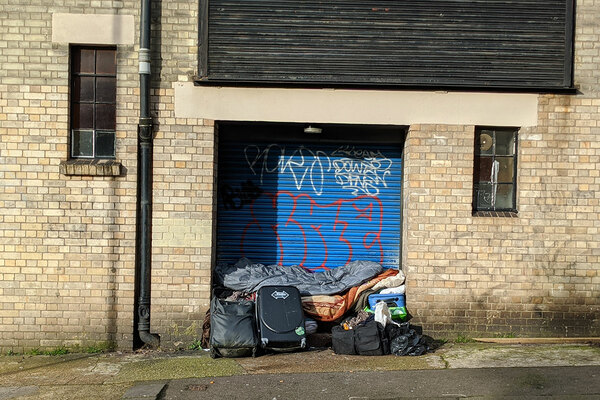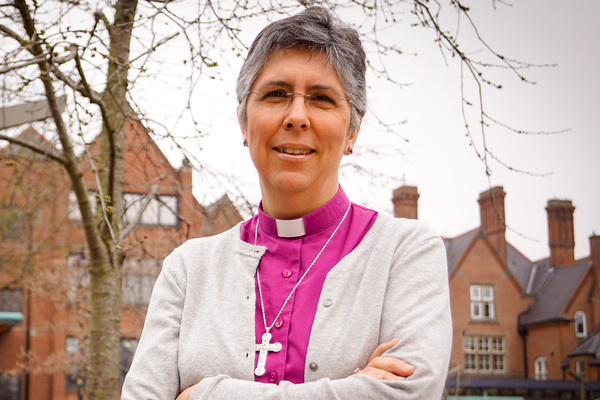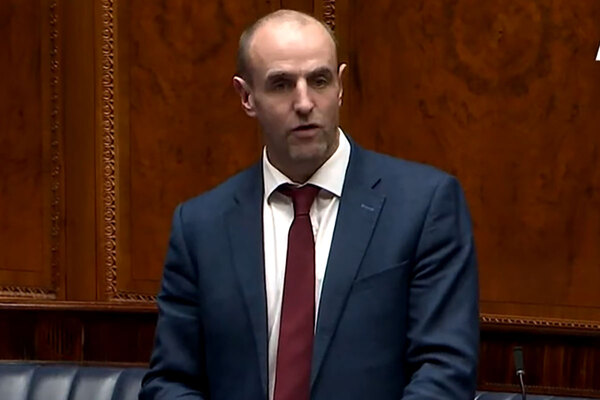
For 60 years, Ken Loach has been warning against the kind of crisis we now face
Ken Loach has worked to capture social injustice on film across a 60-year career. But the issues he has always talked about are as relevant today as they have ever been, writes Glyn Robbins
For nearly 60 years, Ken Loach has used film to capture – and condemn – social injustice. One of his earliest works for BBC One’s The Wednesday Play – 1996’s Cathy Come Home – was seared into the national consciousness, particularly for people working in housing.
But we are entering uncharted territory. The Ministry of Justice reports 36,000 eviction cases in the legal pipework. This doesn’t include the thousands of tenants threatened with losing their homes by landlords who don’t go through the proper process.
On the estate I manage – close to the area where Cathy Come Home was filmed and the HQ of an organisation the film inspired, Shelter – a private landlord has recently tried to bully an 89-year-old widow out of her home, where she’s lived since 1971.
The eviction tidal-wave Shelter predicted is fuelling the doubling of council waiting lists reported by the Local Government Association. Unless the government urgently changes direction, we will see a dramatic rise in street homelessness.
To avoid this fate, we need a national campaign demanding the reinstatement of the eviction moratorium that lapsed on 21 September.
This is the background to an online event being organised and hosted by the Homes for All alliance tomorrow. Ken Loach will talk about his work and be joined by housing activists from Oxford and Berlin who will update on eviction resistance campaigns in their area.
Unlike other “national treasures” and status-seekers, Ken Loach has never courted the establishment’s approval. He refused an OBE in 1977 saying, “I turned (it) down because it’s not a club you want to join when you look at the villains who’ve got it.
“It’s all the things I think are despicable: patronage, deferring to the monarchy and the name of the British Empire, which is a monument of exploitation and conquest” – a sentiment that has particular resonance today, as various institutions attempt to “decolonise”.
The meeting will show clips from Loach films that trace the roots of a housing crisis that COVID-19 has magnified, but didn’t cause.
The toxic blend of unemployment, food poverty and scarce, genuinely affordable homes all pre-date COVID-19. Each of the extracts are a deeply moving reminder of the perilous decline in public services the UK has experienced in the past half century and how it has led us to today.
In 2016’s I, Daniel Blake, the eponymous hero experiences the dehumanising of claiming benefits. Confronted with a bureaucratic edifice and the necessity to use unfamiliar technology to obtain anything from a welfare system he’s paid into for years, Dan is eventually chucked out of the Job Centre.
He’s joined by Katie and her two young children who have been moved to temporary accommodation hundreds of miles from their home and support network in London. As their situation becomes more desperate, the family is compelled to use a food bank, something that has become so commonplace that the government now treats it as mainstream.
“COVID-19 vaccines won’t immunise us against the social consequences of a new age of austerity.
Although we may think things can’t get worse than this, the harrowing closing scene of Cathy Come Home is a warning that they could. Having been evicted from several different homes by an uncaring, paternalistic system, Cathy is sleeping on a train station bench when her children are forcibly taken into care.
It would be comforting to think the world Ken Loach depicts is exaggerated, but for many people, it’s not. The possible COVID-19 vaccines won’t immunise us against the social consequences of a new age of austerity.
But another Loach film points towards an alternative. The Spirit of 45 from 2013 is full of examples of how a country can rebuild its social and physical infrastructure by creating jobs, homes and services that aren’t subject to the whims of the market or pandemics.
It’s vital the housing world joins forces with others to demand a better future. That starts with insisting the government honours its pledge that no one lose their home because of COVID-19.
But it can’t stop there. Something will have to be done about the accumulating rent arrears resulting from loss of income and jobs. The demand for rent cancellation, prominent in some US campaigns, must cross the Atlantic – and this should go hand-in-hand with increasing local housing allowances and cutting the waiting time for Universal Credit.
“Now is the time to invest in real, new and existing, council homes”
But as the LGA report highlights, now is the time to invest in real, new and existing, council homes, as part of a longer-term solution to creating a housing system that’s built to last.
The misery shown in Ken Loach films isn’t inevitable. But as he would be the first to agree, avoiding it will take more than charity and short-term palliatives. The combined effort of tenants, housing workers and advocacy groups can play an important part in restoring hope.
Glyn Robbins, housing campaigner, visting fellow, LSE
Sign up for our tenancy management newsletter
Already have an account? Click here to manage your newsletters














